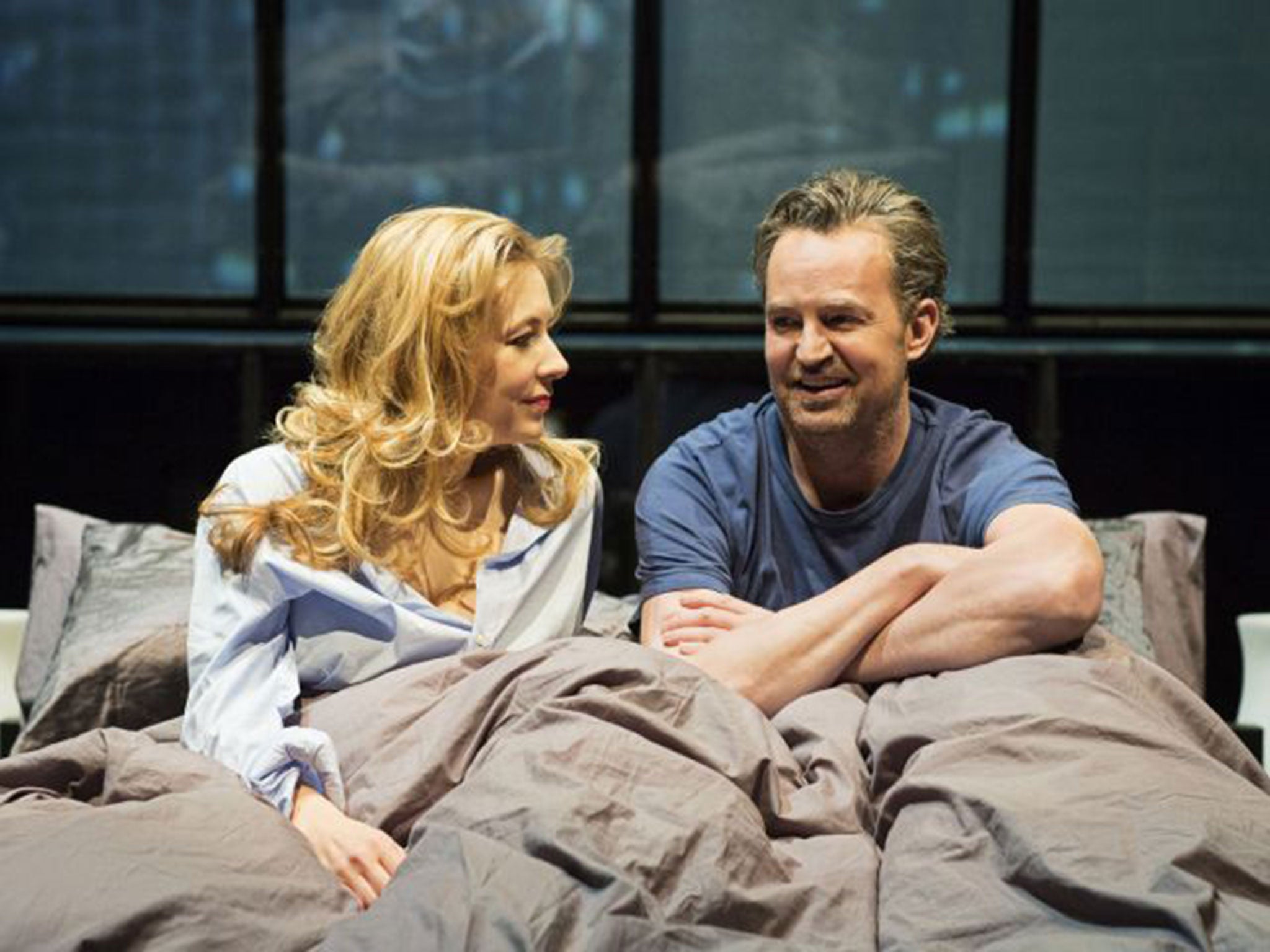The End of Longing, Playhouse Theatre, London, review: Matthew Perry makes a woeful West End debut
The 'Friends' star is a big box-office draw, this will leave all but Chandler's most devoted fans longing for the end

When you hear that Matthew Perry – Chandler in Friends – is starring in his own playwriting debut in the West End, the words “ego trip” float before the eyes as inevitably as pound signs no doubt floated before the producer’s. And the audience is filled with excitable Friends fans who chorus “Hi” back when Perry opens the play with a direct address. Let’s have no snobbishness about this, please: casting that gets a new audience into the theatre is great. It’s just a shame they’re seeing this play.
It is a woeful attempt at a dark-but-redemptive romcom, drawing on Perry’s own experiences of addiction. Here’s the unlikely (ie definitely will end up together) American foursome: best friends Stephanie, a prostitute with a heart of gold, and Stevie – a super-neurotic 37-year-old desperate for a baby – meet sarcastic, alcoholic photographer Jack and his dim pal Joseph. Joseph is essentially Joey from Friends. Joseph. Joey. Just going to leave that there.
If you find prostitution or the idea of an attractive woman “blowing” old men roll-in-the‑aisles hilarious, by all means buy a ticket: Stephanie’s job is the punchline for most jokes. The first half aims at an early Mamet or Neil LaBute-style, explicit, edgy, sexual humour; naturally, that’s now more dated than Chandler’s baggy shirts in early Friends episodes. C’mon, people, sexual politics have moved beyond the idea that all men are porn-loving horn dogs, and all women needy, desperate romantics. Perry’s gendered clichés are stale as a drunk’s morning breath.
The second half wrings out the comic possibilities of a highly strung, angry woman in labour, before complications raise the stakes and allow everyone to realise that life is too short for, uh, being an alcoholic or a hooker. Still, Perry’s depiction of addiction does at last bring some stinging truth to the play. When Jack turns bitter and pitiful, full of fearful self-loathing as he contemplates life without booze, there’s a real charge to Perry’s performance. That sounds salacious, like getting off on troubled celebrity, but it’s a credit to his honesty.
It’s just a shame about the rest of the script. There’s so little believable connection or tenderness between these friends and lovers, and their characters have about as much depth as a puddle in a heatwave. Lloyd Owen comes out of it much the best, finding dopey comedy and human warmth in Joseph and his affection towards Christina Cole’s Stevie (she remains as shrill and brittle as the writing demands). Jennifer Mudge works hard to inject spark, but can’t go far with Stephanie.
Under Lindsay Posner’s near-invisible direction, the sitcom-style, rat-a-tat beats of the writing rarely land and Perry is curiously flat and stiff for much of the play. It may also be that a West End theatre, filled with Anna Fleischle’s slow-moving city apartment sets, is simply too large for this play. Perry is a big box-office draw, but The End of Longing will leave all except the most devoted Friends fans longing for the end.
Join our commenting forum
Join thought-provoking conversations, follow other Independent readers and see their replies
Comments
Bookmark popover
Removed from bookmarks